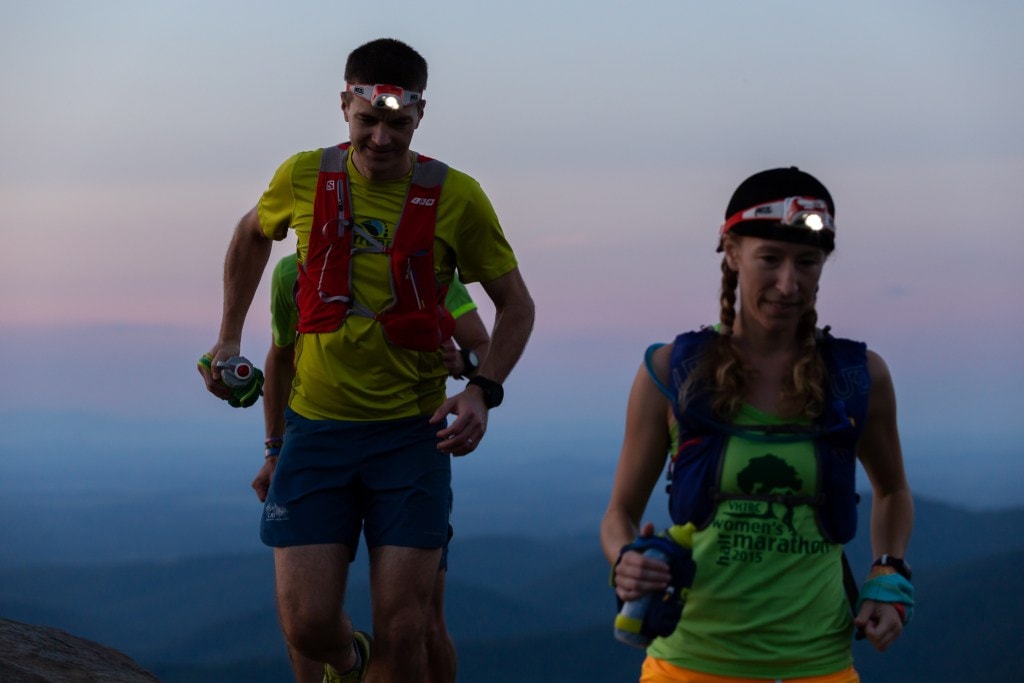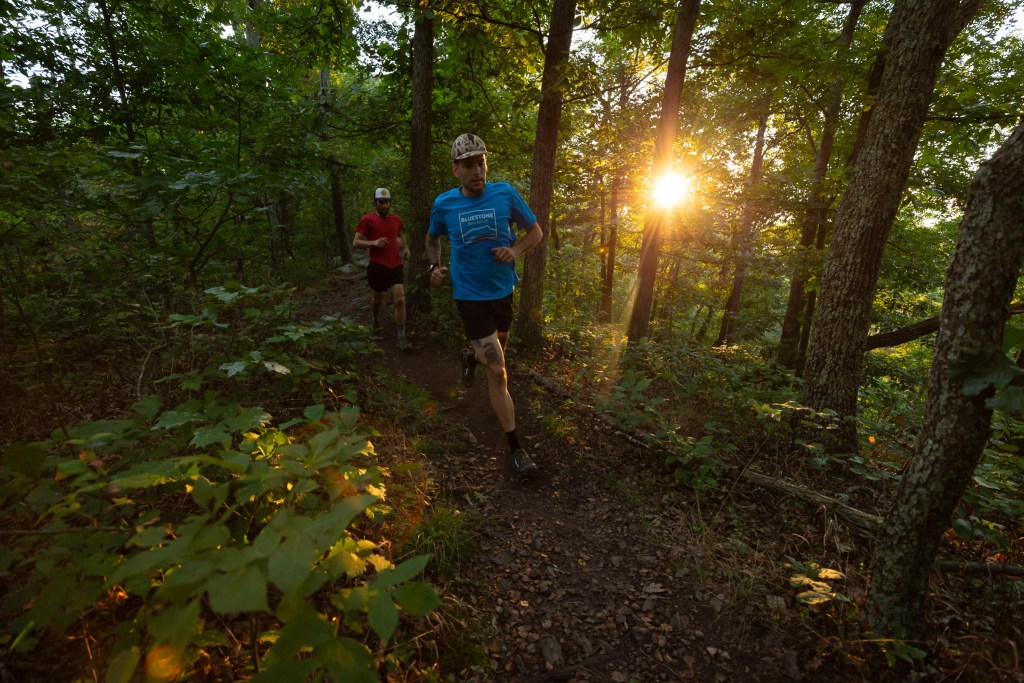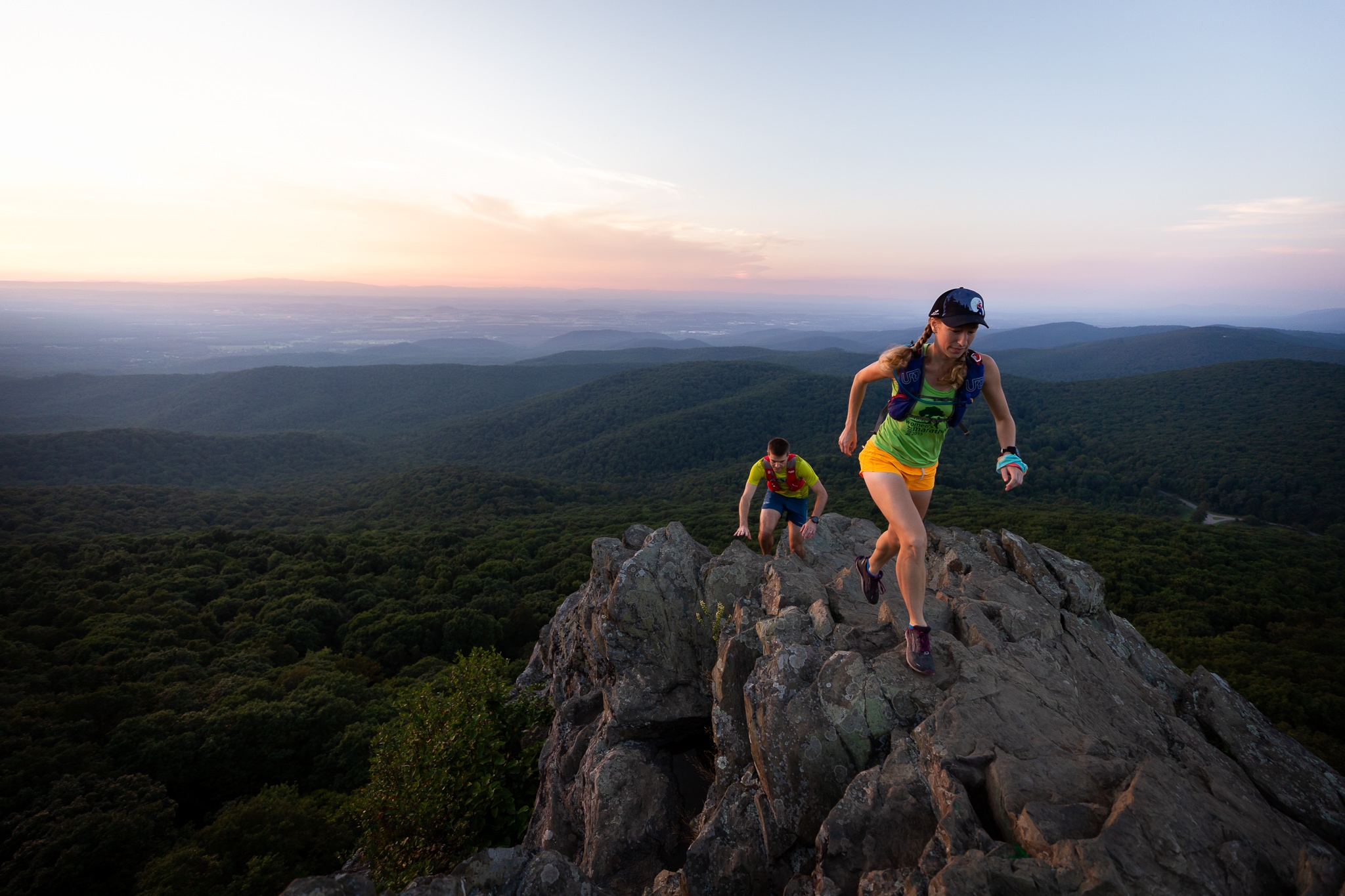Sophie Speidel, an ultrarunner from Charlottesville, Virginia, was used to training in the late afternoon—between 3:30 and 6pm—when she made the U.S. Women’s National Lacrosse Team in 1982. But as time went on and Speidel switched from lacrosse to triathlons and ultramarathons, her body and preferences changed. She started running in the mornings and found she had more energy to train longer and faster.
“As a runner, I prefer and feel my best early in the morning,” said Speidel. “My body does not like the afternoons anymore. But I also work full time and coach lacrosse until 6:30pm. Now my body and my lifestyle dictate what works for me.”
Research on the effect of time of day on optimal athletic performance has long shown that anaerobic performance, like strength training, is at its lowest in the morning and highest in the afternoon and evening. Studies on aerobic performance like running, however, is more ambiguous. Some research, like this 2011 study from Appalachian State University, claims that morning exercise is better since it lowers blood pressure and improves sleep cycles, while other studies, like this one published in 2017 in the Journal of Strength and Conditioning Research, find that performance peaks in the evening.
Devon Yanko, the 2017 Leadville 100 champion, prefers to train in the morning. When she and her husband opened a bakery, M.H. Bread and Butter in San Anselmo, California, in 2013 Yanko had to train whenever she could, which sometimes meant getting up at 2am to run.
“I feel much better first thing in the morning when my legs are fresh, my energy stores are full and coffee is coursing through my veins,” said Yanko. “But I also run in the early morning because it’s the most conducive to my schedule.”
Yanko’s affinity for early-morning runs directly translates to her races. Having run more than 50 ultras, Yanko now expects to feel good during the morning hours of a race. But in 2015 when she ran Arizona’s Javelina 100 and set the third fastest trail 100-miler ever for a North American, Yanko experienced a boost of energy in the evening.
“After working on the night shift [at the bakery] for a year, I have found myself to be less of a slave to my body’s clock,” said Yanko. “My body was used to getting going again at that hour.”

If you run at night or in the early morning, don’t forget your headlamps. (Photo Credit: Jess Daddio)
According to Dr. Roland Brandstaetter of the University of Birmingham, Yanko and Speidel’s shifts are proof not only that your circadian phenotype affects performance but that it can also adapt. In 2015, Brandstaetter and a team of British researchers found that if you’re a “lark” (morning person), you perform better midday. If you’re an “owl” (late sleeper), athletic output is best in the evening.
In 2014, Brandstaetter launched the first-ever Circadian Advice Bureau to help people adjust their body’s clock, thereby shifting peak performance in athletes, a process that Brandstaetter says can take anywhere from two days to one week.
“We are trained to believe by medicine that there is a general cure for everything, one specific pill for every condition,” said Brandstaetter. “Biological clocks are individual and need to be treated like that. Optimal physical performance is an intrinsic physiological feature, not just a consequence of time of day.”
John Andersen, owner and coach of Virginia’s Crozet Running, gets up at 4:30am five days a week to squeeze in a two-hour run before work. Even though he considers himself a lark, he still questions his decision every time the alarm goes off.
“Zero times ever has that felt natural,” he said. “The runners I run with are generally people in their 40s with kids and jobs, and we’re all just scrounging for miles. Science is great, but in the end it’s a matter of when can you carve out the most time.”

Are you a lark or an owl? Choose your best running time of day based on your preferences. (Photo Credit: Jess Daddio)
So, is there a universal best time of day to run? Not really, but depending on your goals, there are some general guidelines. Trying to establish a healthy habit of regular running? Research suggests you may want to consider running in the morning. Preparing for a race that starts late at night or takes place in another time zone? Experienced runners like Yanko will tell you to replicate that start time in your training. Struggling with energy levels during a certain period, like the heat of the day or the evening? Then intentionally train during those times.
Or, if you’re like Andersen, fit in a run whenever you can, because most of the time, personal schedule rather than biological clock is truly what dictates when we can run.
